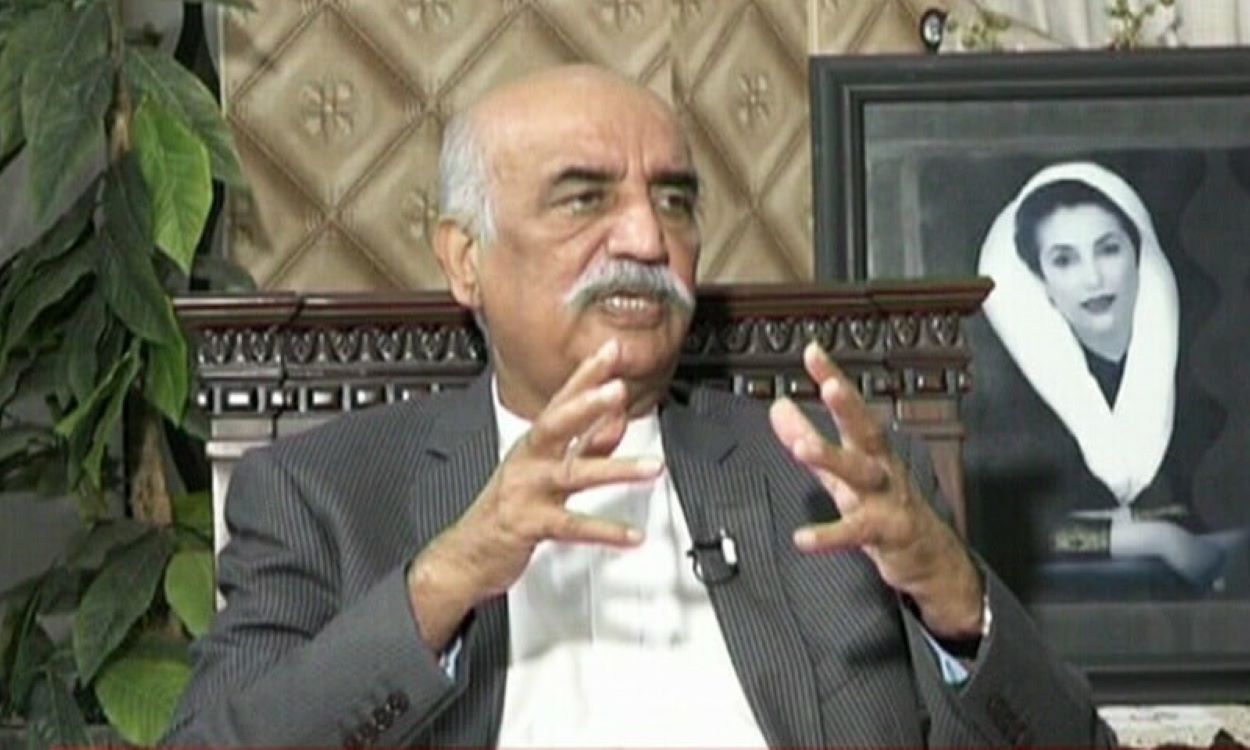Senior leader of the Pakistan Peoples Party (PPP), Khursheed Shah, stirred the political atmosphere on Tuesday by questioning Nawaz Sharif, the head of Pakistan Muslim League-Nawaz (PML-N), reentering the Pakisatn’s political scene through a questionable arrangement.
Addressing the media in Sukkur, Shah articulated a bold request directed at Nawaz: endeavouring to “save Pakistan” without becoming a pawn in anyone’s game.
“Nawaz Sharif must refrain from seizing power through backdoor alliances and must transparently declare his intentions,” Shah asserted, emphasizing the critical nature of Sharif’s return in shaping the political landscape. The PPP stalwart underscored his party’s scepticism regarding the timing of the elections, suspecting a delay to favour the PML-N leader.
A History of Power and Principles
Shah highlighted the PPP’s tradition of adhering to its manifesto and gaining authority through legitimate means, a stark contrast to what he implies is happening with Nawaz Sharif. “If Nawaz takes an unprincipled path to power, history will remember him as ‘selected’ rather than elected,” Shah remarked, alluding to the potential undermining of democratic values.
Sharif’s recent return from his self-imposed exile culminated in a significant political gathering in Lahore, where, despite his history of critiques against the establishment, he claimed to harbour no vengeful sentiments.
Supreme Court Ruling: Shift in Legal Precedents
Turning the conversation toward judicial matters, Khursheed Shah delved into the Supreme Court’s recent decision regarding the military trial of civilians. He expressed reservations about civilian courts’ capacity to impartially prosecute high-profile cases, especially those involving attacks on state institutions.
Reflecting on past instances where courts have shied away from controversial cases, Shah acknowledged the Supreme Court’s authority but also pointed out the necessity for introspection regarding returned cases of major terrorists. This commentary followed a landmark verdict by a five-member bench that ruled the military trial of civilians null and void, impacting 102 accused individuals and potentially reshaping Pakistan’s legal framework concerning civil-military relations.






